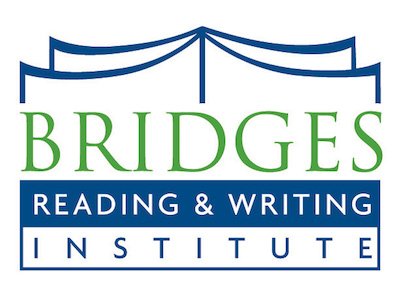Reading. Our sixth through eighth graders are often faced with the task of writing a persuasive or argumentative essay. The art of persuasion and argumentation go together. Both start with taking a microscope and understanding the rhetorical and textual devices speakers or writers use to build strong persuasive arguments. We will read a collection of famous speeches or persuasive essays across classical and contemporary time frames to understand what makes each writer a particularly good orator. We will also look at sets of texts with articles about the same subject, each article posing different points of view either positioned as neutral, for, or against.
Our students will ask these questions:
Does the speech/article directly state the position so that the thesis statement is right on the page? Or is the position implied (suggested in the details and word choice)?
Does the speech/article take on an objective or biased point of view?
What specific tactics and rhetorical devices does the speaker/author use to enhance persuasion or argumentation?
What is the speech’s/article’s tone? Is the intensity subtle, moderate, or flagrant? What tactics and rhetorical devices build this intensity?
Does the speech/article present an opposing argument or counter argument? Are there loopholes in the logic or does the counter strengthen the overall message?
What tactics does the speaker/writer use to employ ethos, pathos, and logos? What tactics and rhetorical devices enhance this?
Does the article have sufficient evidence to back up the claim?
Does the article present facts, statistics, and details accurately?
Does the article mislead the reader by not including specific details?
Writing. What is the most important trait that someone needs to succeed? What is a skill every child should learn? Can trade schools be a good option for some students rather than a four-year college? Should community service be a requirement for school-aged children? Does technology help or hurt our schools? Are introverts and extroverts equally successful? Is talent or hard work more important? Should kids be reading the news every day? Our sixth through eighth grade students will learn how to write a persuasive essay about one of these everyday life issues or any issue they would like to consider. Students will use the same writing strategies we identify while analyzing the essays we read during class. While making sure they clearly present an opinion or argument, students will learn how to effectively brainstorm and research the specific evidence that can adequately and credibly back up their claim. Simultaneously, they will practice the use of rhetoric, sentence syntax, and word choice to enhance their writing style and build strong pathos, logos, and ethos for their argument. Their essays will include an introductory paragraph, one to three body paragraphs, and a concluding paragraph. Students will practice using the full writing process (brainstorming, organizing, drafting, revising, editing). We will structure the unit with plenty of support and guided structure to aid students through the writing process.
Our students will:
choose from a variety of topics to determine what opinion/argument is of interest
determine the pros and cons for the chosen topic
formulate an opinion (topic sentence/thesis sentence) that can be backed up with three solid reasons and evidence
learn how to quickly and effectively brainstorm reasons and evidence using true-to-life experiences, statistics, quotes from the provided text, and facts that support their opinion
use other resources for additional research (if needed)
think through and provide a counterargument to give credit to the opposing point of view
create a detailed outline that follows the paragraph or essay format, including an introduction, two reasons, one counterargument, and a conclusion
develop strong and effective voice through word choice, rhetorical devices, and sentence syntax
build strong body paragraphs with additional detailed elaboration that digs deeper into each reason
take ownership during the drafting phase of writing by writing intentionally, thoughtfully, neatly, and with proper mechanics and spelling
learn valuable revising tools to improve their drafts (incorporating Bridges writing rules to elevate language, sentence fluency, elaboration of detail)
learn standard editing tools to independently find their own mechanical (punctuation, capitalization, tensing), spelling, and formatting errors
